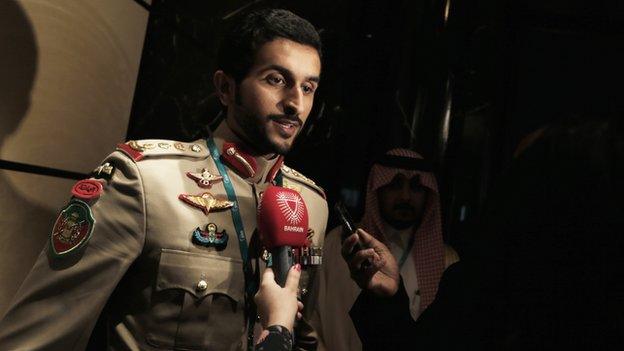Bahrain revokes the nationality of 72 people
- Published
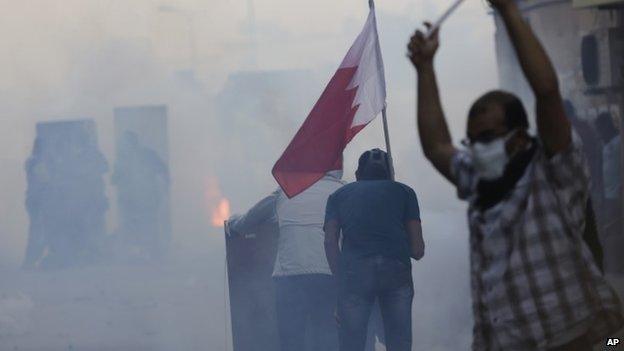
Bahrain has been wracked by unrest since an uprising in 2011 in which the Shia majority demanded democratic reforms
The government of Bahrain has revoked the nationality of 72 citizens on grounds of damaging national security, the state BNA news agency has reported.
It says that the measures have been implemented in part to "preserve security and stability and fight the danger of terrorist threats".
Correspondents say it is the largest number of Bahrainis to be stripped of their nationality since 2013.
At that time a law was introduced to punish people convicted of terrorism.
Bahrain has been wracked by unrest since an uprising in 2011 in which the Shia majority demanded democratic reforms from the Sunni-led government.
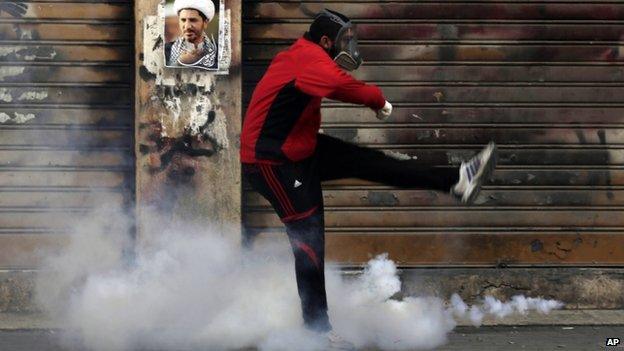
Tensions have been high since elections in November were boycotted by the opposition
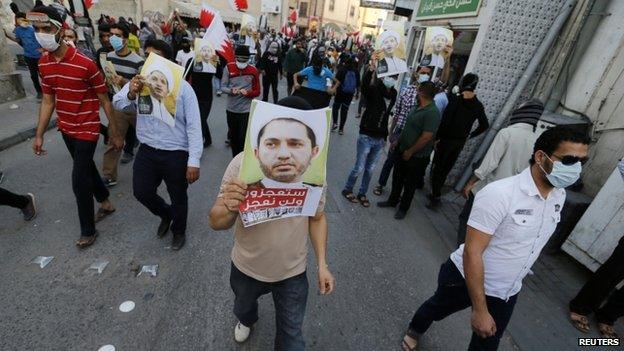
Demonstrators march with the photos of opposition leader Ali Salman, who was arrested in December
Tensions have been high since elections in November were boycotted by the opposition, who said parliament lacked sufficient powers and that constituency boundaries had been redrawn to favour their supporters.
Strongly condemned
The Reuters news agency says the fact that Saturday's list includes the names of well-known Sunni and Shia Muslim families indicates that the move is not solely directed at eradicating long-running unrest among Bahrain's Shia Muslim majority.
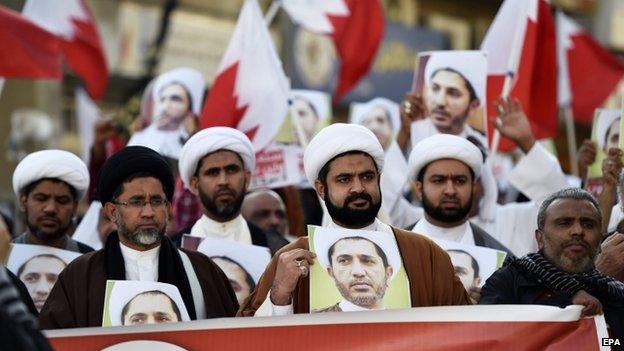
Bahrain's Shia majority has demanded democratic reforms from the Sunni-led government
The revocation policy has been strongly condemned by human rights groups.
Previous citizenship revocations in recent years have been directed at activists abroad and in Bahrain, who were afterwards told to leave the country.
"The ruler of Bahrain revoked my citizenship today without a court, any charges or clear evidence of why," British-based Bahraini blogger and activist Ali Abdulemam wrote on Twitter, external.
Bahrain's governing al-Khalifa family used martial law and assistance from its neighbours in the Gulf to suppress a Shia uprising in 2011, but the unrest has persisted and protesters and police often clash.
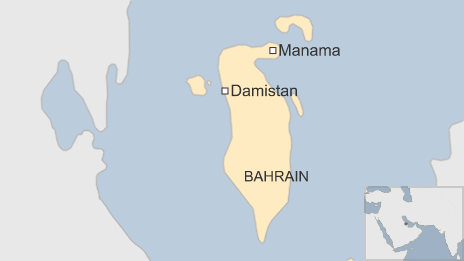
- Published6 December 2014

- Published9 December 2014
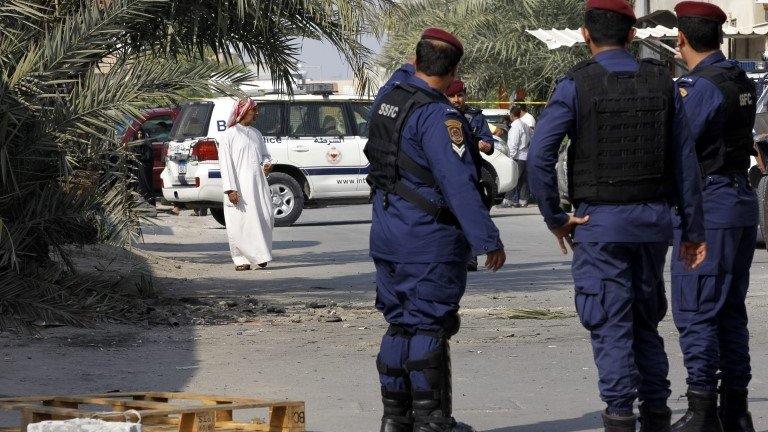
- Published22 November 2014
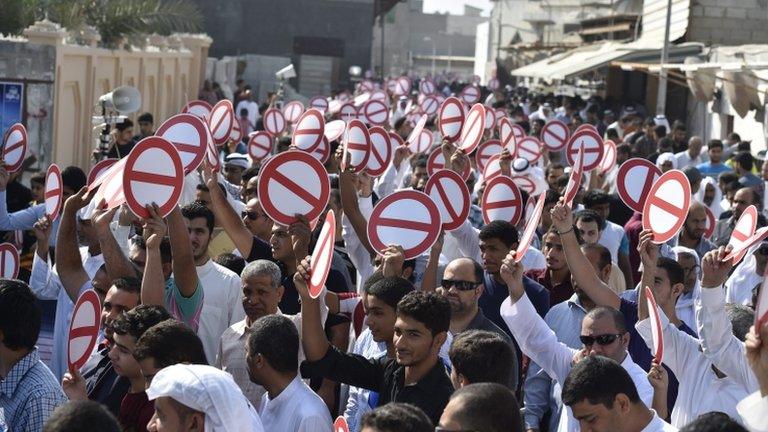
- Published7 October 2014
